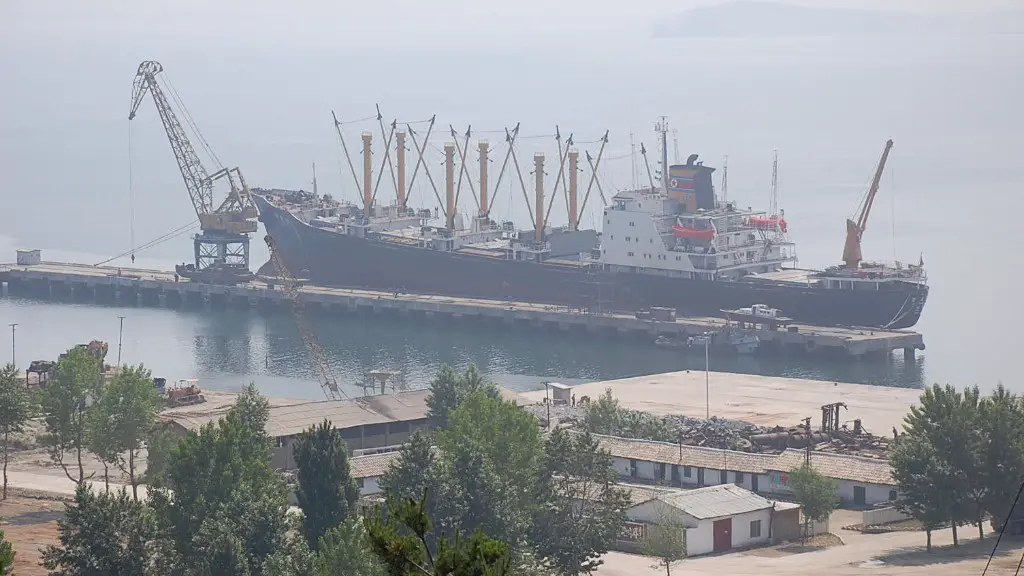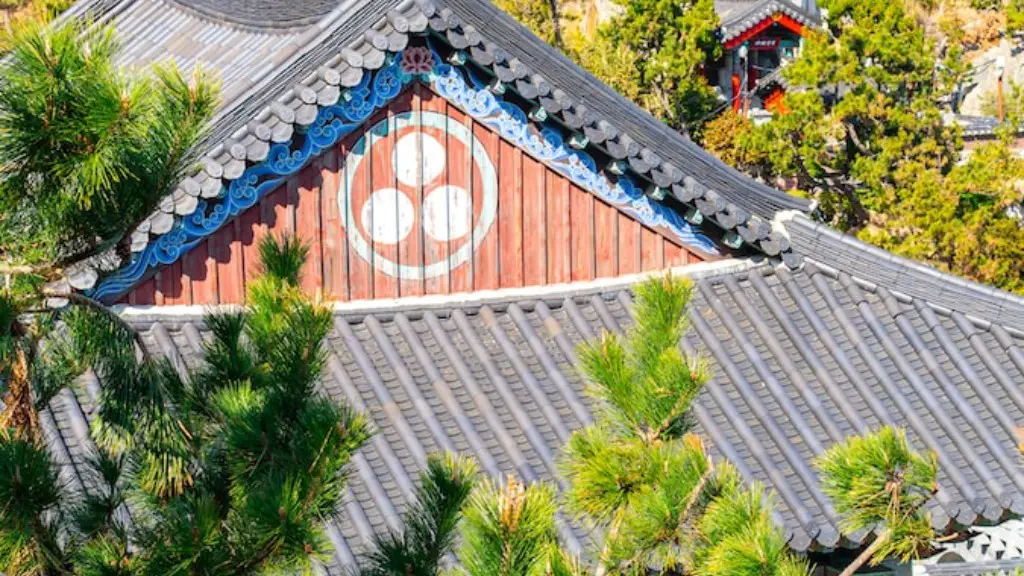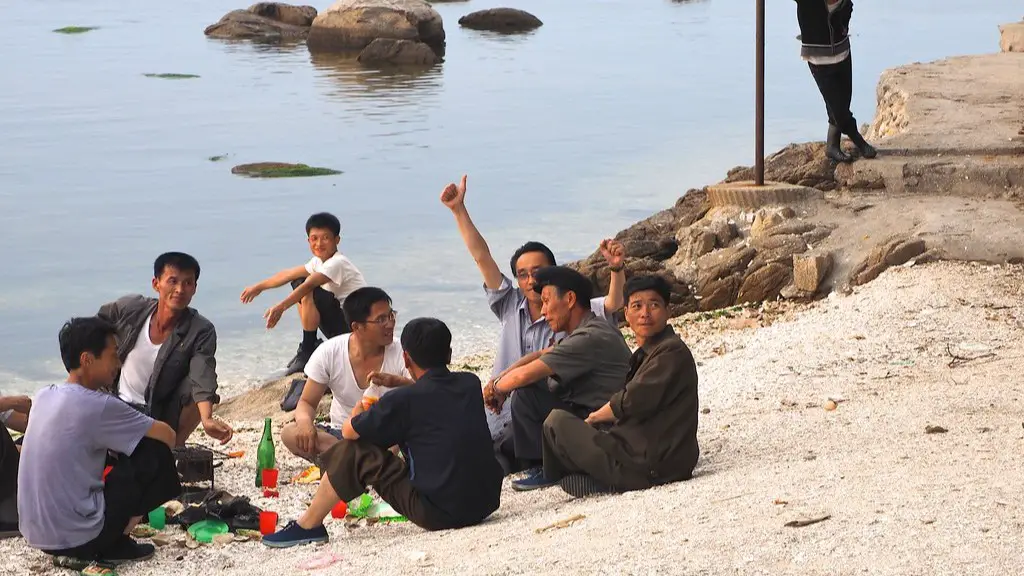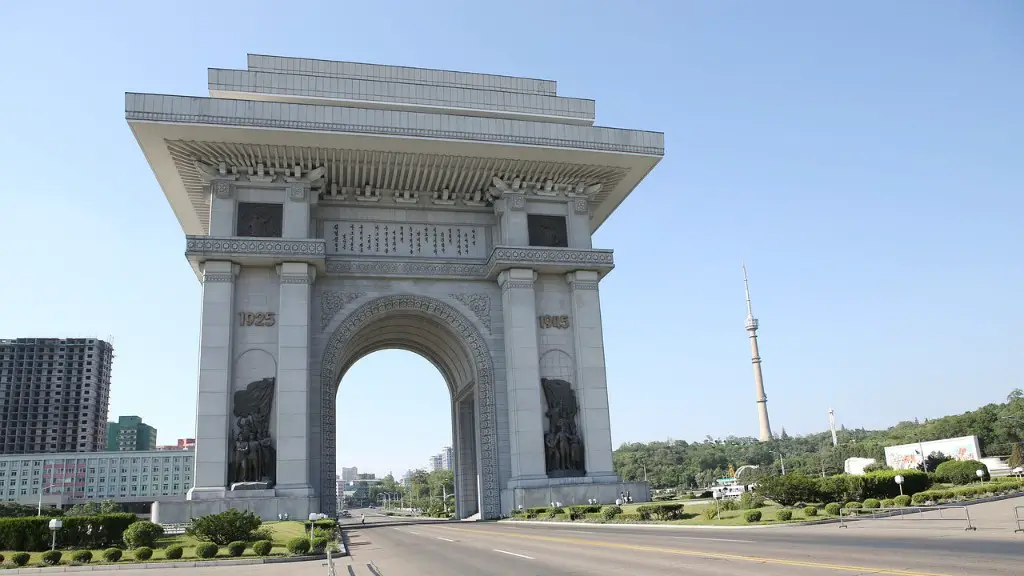Political Climate of North Korea
North Korea is a hermit state whose actions are shrouded in mystery. This secretive nation is known for having a totalitarian rule and possessing nuclear weapons. One of the only communist countries in the world, North Korea has an erratic relationship with the global community, often involving saber-rattling, international boycotts, and regional instabilities. To understand the increasing instability of the country, it is necessary to explore the political culture and the overall context.
North Korea is led by a single-party system and its main leader is dictator Kim Jong-Un. He took power in 2011 after the death of his father, Kim Jong-il. North Korea is highly centralized and the government’s primary focus has been on maintaining its rule through strict control. The media and other forms of communication are heavily monitored and the population is kept in check through the use of propaganda. Its economy operates on an active barter system and it maintains a closed currency, with the only accepted currency being the state’s own. The nation also faces significant international sanctions, imposed by the United Nations, primarily due to its nuclear weapons program and its history of human rights abuses.
North Korea’s external policies have been antagonistic in nature, with the nation often testing its ballistic missiles, transgressing the borders of neighbouring countries and engaging in cyber-attacks against other nations. This has led to North Korea becoming increasingly isolated, particularly in relation to the other major powers in the region, such as China and the United States. While North Korea has been able to maintain its autonomy due to its nuclear arsenal, its economy has been significantly weakened by international sanctions, leaving it vulnerable and unable to cope with the effects of a potential implosion.
Experts’ Perspectives
Experts have long been debating if, and when, North Korea will implode. Some forebode an impending collapse, while others insist that the nation will continue to survive. There is the risk that a regime may collapse suddenly due to internal dynamics, in the same way as the Soviet Union. On the other hand, the state could fractionalize and become more like a city-state, as has been the case with Somalia. Political analysts have come up with several theories suggesting that North Korea may either survive or collapse.
The “Long View” theory suggests that North Korea will be able to remain stable in the long term. This is based on the assumption that its authoritarian nature will ensure its survival, despite sanctions and greater international pressure. The “Vulnerabilities” theory, on the other hand, suggests that North Korea is inherently fragile, and its current trajectory risks a sudden collapse. This was demonstrated in the collapse of the Soviet Union, which occurred due to the state’s over-reliance on its military capabilities and the shortcomings of its command economy.
The “Bottom-Up” theory offers a different perspective: one that suggests that North Korea’s collapse will be triggered by changes from within the country caused by a resilient and determined populace. This could be possible, as dissatisfaction with the regime seems to be on the rise. It remains to be seen if North Korea can hold together under the pressure of sanctions and dissent from its population.
South Korean Influence
South Korea has a great deal of influence over the political climate in North Korea. The two countries have been in an uneasy truce since the end of the Korean War in 1953, and since then South Korea has adopted a policy of engagement in an attempt to foster peace. However, the South Korean government has maintained a hardline stance towards the North, increasing sanctions and refusing to have any direct contact with the regime.
South Korea is also constantly monitoring North Korea’s internal dynamics and is prepared to respond to any potential crisis. In the event of a potential collapse, South Korea is prepared to absorb the refugees and provide assistance in rebuilding the North. South Korea has also invested heavily in a range of technologies and systems to monitor North Korea and detect any sudden changes.
South Korea has also been engaging with China recently, in an attempt to increase their cooperation in the case of a North Korean collapse. These efforts have been met with approval from the United States and the international community at large, as it is viewed as a positive step towards regional security and stability.
Current Economic Conditions
North Korea’s economy is in a precarious situation, as the nation faces severe economic hardships due to international sanctions, as well as its own flawed internal systems. The sanctions have reduced North Korea’s access to external sources of capital, food, and energy, leading to a severe drop in its Gross Domestic Product (GDP). As a result, the country’s citizens have been facing severe shortages of basic goods and services, such as food and healthcare.
In addition, the nation’s currency, the won, has been in a state of significant devaluation, as the nation continues to struggle to keep it stable. In recent years, North Korea has also been unable to engage in meaningful trade with other nations, as the majority of its trading partners refuse to do business with the country due to its nuclear weapons program. This has further reduced its access to foreign capital.
The country’s infrastructure is also in poor condition, with poor roads and lack of access to electrical grids. This has further exacerbated its economic situation, as it has been unable to engage in any kind of meaningful industrial production. In addition, North Korea has been unable to access international markets, as many companies and nations have refused to invest in the country due to sanctions.
In the face of its precarious economic situation, North Korea has attempted to attract foreign investments in an attempt to save its economy. In recent years, the nation has opened up some of its industries to foreign investors, and opened the door to some foreign trade. However, these efforts remain inadequate, due to the nation’s unstable political situation and lack of access to foreign capital.
Risk of Conflict in Region
The precarious political and economic situation in North Korea has raised fears that the nation could fall into chaos, leading to a potential conflict in the region. There is a real risk that the nation’s political instability could lead to a civil war, as different factions may compete for power. Such a conflict could have devastating consequences for the entire region, as the nation borders China, Japan, and Russia, as well as South and North Korea.
In addition, North Korea is also a known possessor of nuclear weapons, and a conflict could lead to the use of such weapons. This would cause immense destruction, leading to loss of life and massive displacement. Furthermore, a conflict could lead to the displacement of refugees, who may be unable to find safety elsewhere due to global refugee policies.
Given the potential consequences of a North Korean conflict, global actors have been engaging in diplomatic efforts in an attempt to discourage the North Korean government from engaging in any provocations. The United Nations and other global powers have been pressuring North Korea to comply with international standards, while the United States and its allies have been increasing diplomatic and economic pressure on the regime.
International Reactions
The international community’s reaction to North Korea’s political and economic instability has been largely negative. Global powers such as the United States, China, Japan, and South Korea have remained steadfast in their commitment to non-interference in the nation’s internal affairs. However, they have been vocal in their condemnation of the nation’s development of nuclear weapons and their decision to engage in cyber-attacks against other nations.
The United Nations has also been consistently vocal in its criticism of North Korea’s policies, having passed a series of sanctions against the state. The sanctions, which are regularly updated, are aimed at pressuring the nation into complying with international standards and encouraging the nation to abandon its nuclear weapons program. In addition, the United Nations has been providing humanitarian aid to North Korea, in the form of food and medical supplies.
The global community has also been engaged in negotiations with North Korea in an attempt to bring about an end to the nation’s nuclear weapons program. For example, the United States and North Korea recently signed an agreement which provided economic incentives for the state in exchange for its discontinuation of its weapons program.
Implications for Neighbouring Countries
The potential collapse of North Korea has implications for the neighbouring countries, particularly South Korea and China. South Korea is particularly vulnerable to the potential instability in North Korea, as the two countries are geographically close and have a history of conflict. A collapse of North Korea would result in a large influx of refugees into South Korea, putting pressure on its already strained economy and infrastructure.
China, on the other hand, would be largely unaffected economically. However, it is likely to face political repercussions, including increased instability in its border regions. China has traditionally had a close relationship with North Korea, and a collapse of the regime would likely result in China losing its ally.
Japan is also likely to be affected by a North Korean collapse, as it has had to deal with various provocations from the regime in recent years, including missile tests and cyber-attacks. However, Japan has also been vocal in its engagement with North Korea, and has been offering economic assistance in exchange for the discontinuation of its nuclear program.
Conclusion
North Korea is facing increasing instability and it is unclear whether or not it will survive. Despite its nuclear arsenal, the nation is highly vulnerable due to its economy’s dependence on external sources of capital and goods, and due to its contentious relationship with the global community. Although global actors have been cautiously engaging with North Korea, it is still unclear what the nation’s future holds. North Korea’s potential collapse could have devastating implications for the region, and the international community needs to be prepared to act in the event of a crisis.





